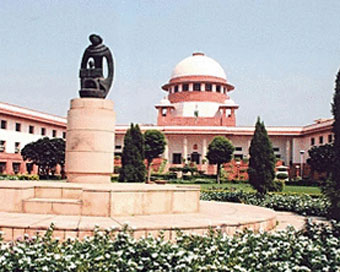 PM Modi visit USA
PM Modi visit USA Only the mirror in my washroom and phone gallery see the crazy me : Sara Khan
Only the mirror in my washroom and phone gallery see the crazy me : Sara Khan Karnataka rain fury: Photos of flooded streets, uprooted trees
Karnataka rain fury: Photos of flooded streets, uprooted trees Cannes 2022: Deepika Padukone stuns at the French Riviera in Sabyasachi outfit
Cannes 2022: Deepika Padukone stuns at the French Riviera in Sabyasachi outfit Ranbir Kapoor And Alia Bhatt's Wedding Pics - Sealed With A Kiss
Ranbir Kapoor And Alia Bhatt's Wedding Pics - Sealed With A Kiss Oscars 2022: Every Academy Award Winner
Oscars 2022: Every Academy Award Winner Shane Warne (1969-2022): Australian cricket legend's life in pictures
Shane Warne (1969-2022): Australian cricket legend's life in pictures Photos: What Russia's invasion of Ukraine looks like on the ground
Photos: What Russia's invasion of Ukraine looks like on the ground Lata Mangeshkar (1929-2022): A pictorial tribute to the 'Nightingale of India'
Lata Mangeshkar (1929-2022): A pictorial tribute to the 'Nightingale of India' PM Modi unveils 216-feet tall Statue of Equality in Hyderabad (PHOTOS)
PM Modi unveils 216-feet tall Statue of Equality in Hyderabad (PHOTOS)The Badminton Association of India (BAI) has announced a 14-member-strong India squad for
- Men’s Sr Hockey Nationals to be played in division-based format from April 4
- Mensik denies Djokovic 100th title in Miami final
- KIPG: Son of a vegetable vendor, Bihar’s Jhandu Kumar eyes Worlds, 2028 Paralympics
- Hardik Singh credits hard work and team unity for receiving HI Midfielder of the Year award
- Djokovic, Alcaraz land in same half of Miami draw
Female genital mutilation violative of bodily integrity, privacy, SC told Last Updated : 31 Jul 2018 11:49:17 PM IST 
Supreme Court The Centre on Tuesday told the Supreme Court the practice of female genital mutilation (FGM) in Dawoodi Bohra community is violative of bodily integrity which is a part of right to privacy and dignity.
Referring to the reports of the World Health Organization (WHO) and the United Nations (UN) calling for prohibiting the practice of FGM, Attorney General K.K.Venugopal on Tuesday told the bench of Chief Justice Dipak Misra, Justice A.M. Khanwilkar and Justice D.Y. Chandrachud that the practice was violative of bodily integrity which is part of right to privacy.
Asserting that FGM was not a part of essential religious practice of Dawoodi Bohra community, thus not protected by Article 25 and Article 26 of the constitution, Attorney General Venugopal told the court that the practice of FGM causes bodily harm which sometimes are permanent and come in the way of bearing children.
Seeking to put a stop on the practice, the Attorney General referred to the way Sati, Devadasi and Thuggery were outlawed.
When the Attorney General said that "it is irreversible", senior counsel Abhishek Manu Singhvi quipped saying "as irreversible as male circumcision".
"Male circumcision is held to be good," countered the AG, telling the bench that "42 countries have outlawed it (FGM) in all its form".
Singhvi appeared for Dawoodi Bohra Women for Religious Freedom (DBWRF).
Contending that 'we are not a backward country where all these practices can survive and perpetuate in the name of a essential religious practice', Venugopal said: "We have a working positive constitution," and merely because it is an old practice, it can't continue.
The court is hearing a PIL by Sunita Tiwari seeking declaration that the practice of female genital mutilation prevalent amongst Dawoodi Bohra community is illegal and against the constitution.
Contending that FGM adversely affects sexual functions of the women, senior counsel Shyan Divan said it has both short term and long term medical implications on the girl child and later as she grows into woman.
Asserting that the practice of FGM is violative of fundamental rights, Divan told the bench it violates right to bodily autonomy, bodily integrity, dignity, special rights of girl and women and the right to health and well-being.
Divan had appeared for two Dawoodi Bohra community women Dilshaad Tavawalla and Shaheeda Kirtane.
As Singhvi sought to defend FGM as an old practice which is customary in the Dawoodi Bohra community, Justice Chadrachud said: "It is performed by a non-medical person, it is not performed by a medical doctor in hospital, it is touched not by mother or doctor and it touches the genital that causes pain, blood and trauma" and "child put under such a procedure will resist".
Singhvi said that the FGM is done by the people who are doing it for generations, they are trained and follow standard operating procedures.
"It is done with the consent of the mother and by a highly qualified mid-wife," Singhvi said, offering that in future, in each and every case, it will be done by qualified gynaecologist and doctors.
"When the mother is present, she will be more concerned about the child," Singhvi said asserting that the practice was protected by Article 25 and Article 26 of the constitution as being essential to community's customs.
"No doctor will perform such a procedure in the hospital. What is the scientific justification for a doctor to undertake such a procedure", asked Justice Chadrachud.
Singhvi will continue his arguments on August 9.IANS For Latest Updates Please-
Join us on
Follow us on








172.31.16.186







